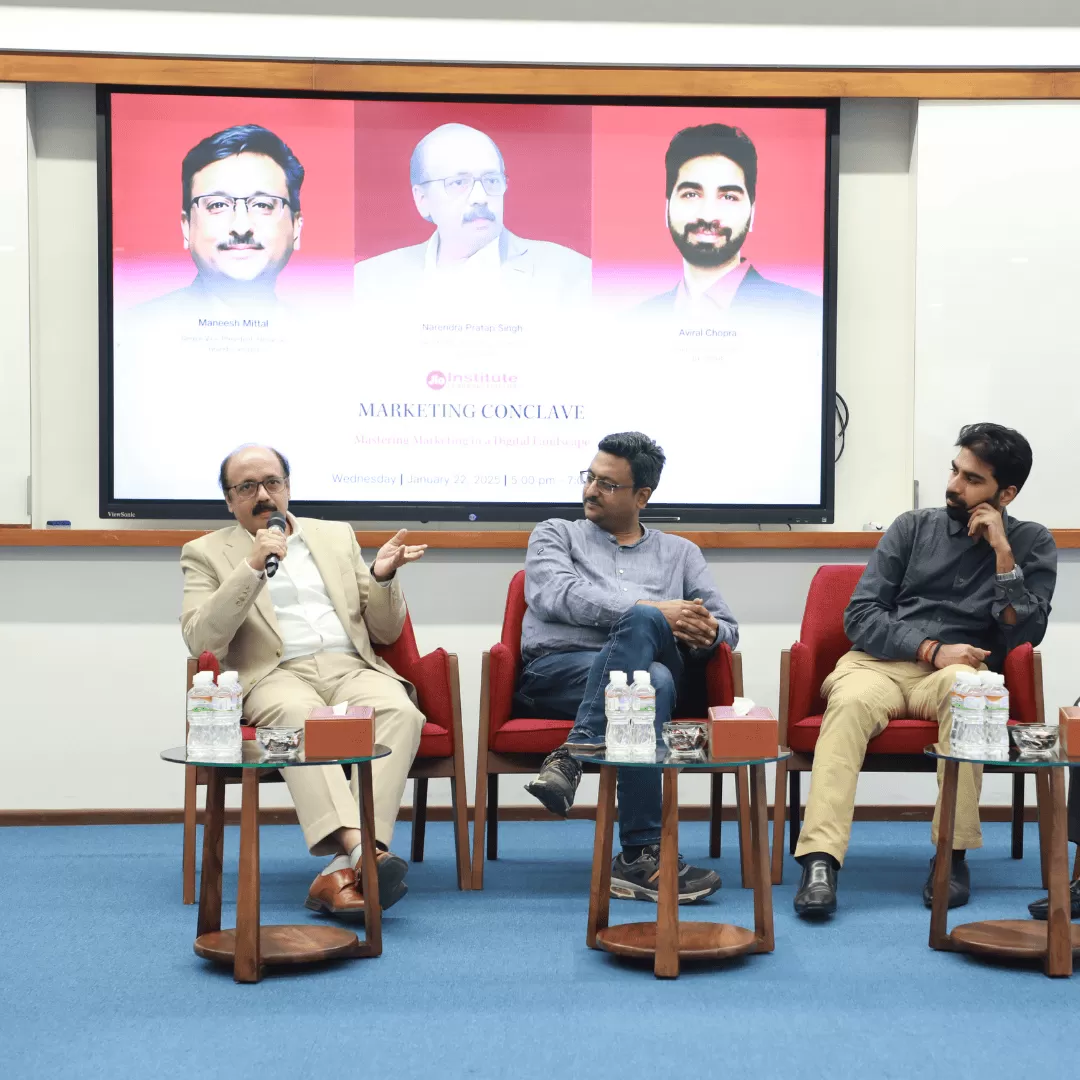
"Marketing is like hosting a viral dance challenge—it’s not enough to keep up with the beat; you need to create the moves everyone wants to follow.” At the recent marketing conclave, industry leaders demonstrated that in today’s digital-first world, adaptability, innovation, and consumer empathy are the ultimate choreography for success.
Key Insights from Industry Experts
Industry experts, including Mr. Narendra Pratap Singh, Director of Business Development at Samsonite, Mr. Aviral Chopra, Supply Chain Lead at Eureka Forbes, and Mr. Manish Mittal, Senior Vice President at Reliance Brands Limited, shared valuable insights on various key topics such as consumer behaviour, luxury branding, technological advancements, and supply chain optimisation.
Understanding Consumer Behaviour
Consumer preferences are shaped by regional and cultural contexts. Brands must tailor their products to local tastes, as seen with Samsonite’s American Tourister designs. Generational shifts are also significant: Gen Z values sustainability, while Millennials focus on value and convenience.
Strategies for Luxury Branding
Luxury marketing requires precision and exclusivity. Brands should target niche audiences, create bespoke experiences, and use emotional storytelling to elevate their offerings. Leveraging tools like lookalike audience modelling ensures campaigns remain aspirational and relevant.
Harnessing Technology for Consumer Engagement
Technologies like Augmented Reality (AR) and Virtual Reality (VR) create immersive experiences, such as virtual try-ons. Additionally, Artificial Intelligence (AI) and data science enable personalisation through predictive analytics, chatbots, and recommendation engines, enhancing customer engagement.
Optimising Supply Chains
Efficient supply chain management is essential in meeting consumer demands. Geospatial analytics, last-mile delivery optimisation, and sustainable practices like biodegradable packaging help brands improve efficiency and align with consumer values.
Retention and Engagement Strategies
In a crowded digital space, capturing attention requires context-driven campaigns and omnichannel strategies. Personalised content and emotional branding, as seen in campaigns like Coca-Cola's "Share a Coke," build lasting relationships. Omnichannel marketing, like Nike's integration of physical stores with apps, ensures a seamless experience, while gamification strategies, such as Starbucks’ rewards program, drive repeat purchases and loyalty.
Case Studies of Innovation
Several brands have set the standard for innovation:
- Samsonite: By introducing American Tourister, Samsonite appeals to younger, style-conscious audiences, while its use of recycled materials aligns with eco-conscious consumers.
- Reliance Brands Limited: This brand has revolutionised luxury retail by combining global luxury brands with digital strategies, offering accessibility without sacrificing exclusivity.
- Hamleys: The brand’s immersive, interactive stores and integration of digital tools like augmented reality games offer customers an engaging, memorable experience.
Conclusion: The Future of Marketing
The conclave underscored that success in the digital-first world lies in blending creativity, technological innovation, and a consumer-centric approach. Brands that prioritise sustainability, deliver immersive experiences, and balance global reach with regional relevance will thrive. Ultimately, the key to enduring success is building emotional connections, trust, and delivering value that resonates deeply with consumers.
